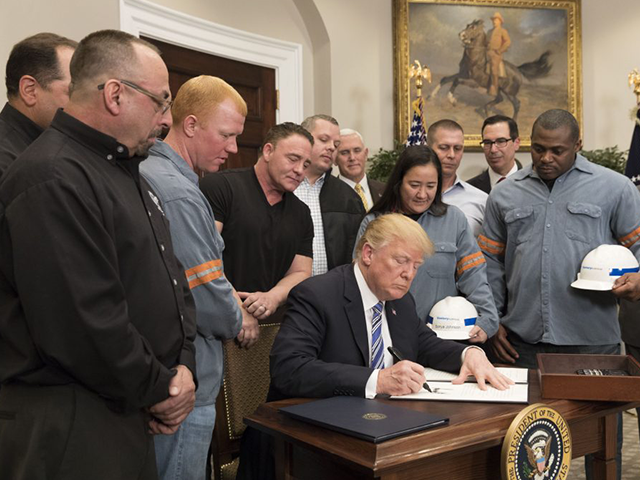The Truth About Tariffs and Taxes
The resurgence of claims that Donald Trump’s proposal for a 10 percent across-the-board tariff amounts to a tax on the American middle class calls for a deeper dive into why these assertions miss the mark.
First, let’s get the basics straight: tariffs are taxes. They are government-imposed taxes on imported goods, levied directly on importers, typically large corporations. These tariffs act as a kind of corporate tax—not on profits, but on the value of goods produced elsewhere and brought into the U.S.
The notion that consumers ultimately foot the bill for these tariffs hinges on the flawed belief that businesses can seamlessly pass on increased costs. This assumes, improbably, that businesses are charging less than what consumers are willing and able to pay. If that were the case, businesses would be leaving potential profits unclaimed—a scenario at odds with market realities.
In practice, businesses typically charge the maximum price the market can bear, balancing consumer demand, supply, and competition. Imposing a tariff on imports doesn’t suddenly grant businesses more latitude to hike prices.
Consider this analogy: if Kamala Harris were to succeed in raising the corporate income tax rate, would businesses then be able to charge more to offset reduced after-tax profits? Hardly anyone seriously argues that corporate income taxes can be passed on to consumers. The same logic applies to tariffs. They squeeze margins and diminish after-tax returns but do not elevate costs for customers.
Claiming otherwise smacks of trickle-down economics. It suggests that low corporate taxes or tariffs benefit consumers through lower prices because businesses must pass on those savings. While appealing, this outcome doesn’t align with observed corporate behavior.
How Foreigners Pay for Tariffs
Facing higher import taxes, U.S. businesses are likely to seek domestic sources to avoid tariffs, mitigating some or all of the margin pressure. Critics argue that domestically produced goods must be more expensive than imports—why else would U.S. merchants opt for foreign goods?
Though plausible in theory, this notion falters in the context of international trade realities. Imagine washing machines produced domestically or in Country X. If Country X’s manufacturers can secure government subsidies for exports, they can threaten domestic competitors with economic ruin by promising to slash prices below production costs if a rival arises. This deters domestic investment without actual price drops, granting foreign producers monopoly pricing power. Thus, assuming imported goods are always cheaper is simply incorrect.
Foreign producers won’t cede market share easily due to a tariff. Economic theory indicates that when a large economy like the U.S. imposes tariffs, exporters often reduce their prices to remain competitive. This is especially true given that Americans are often the primary or even the only buyers for the excess production of trade surplus nations. If these exporters can’t sell to Americans, they have limited alternatives unless they are willing to boost their own consumption.
Consequently, as Trump frequently noted about China, it’s fair to say exporters end up paying the tariffs. Domestic importers may pay the tariff upfront, but they benefit from lower prices on the goods themselves.
Historically, tariffs during Trump’s presidency did not lead to higher consumer prices or spark inflation. Inflation remained low throughout his administration, and tariffed goods did not experience price hikes.
Looking further back, the infamous Smoot-Hawley tariffs, some of the highest in U.S. history, preceded the Great Depression. Instead of causing inflation, the Depression was marked by severe deflation.
Tariffs are not inflationary and do not constitute a tax on the American middle class. They are what they appear to be: a tax on corporations who import goods and on foreign producers who export them into our market.

COMMENTS
Please let us know if you're having issues with commenting.